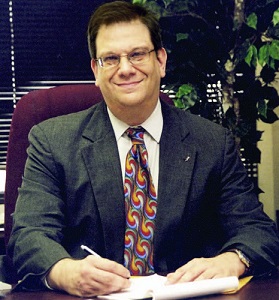April 2017, Vol. 244, No. 4
Editor's Notebook
America Needs Tough Pipeline Regulations

Ray Galvin wouldn’t be too pleased with what’s been going on in Washington, D.C. as it relates to the environment.
Ray was president of Chevron U.S.A. Production Company when I interviewed him in November 1994 for my book, The Oil Makers. He was a brilliant, thoughtful man who had worked his way into a top position with the widely respected oil petroleum company. In fact, with a little more support from his bosses, he may have been the one who unlocked the hidden mysteries of fracking, writes Bryan Burrough in his excellent book, The Frackers.
Galvin loved more than just exploring for and discovering oil. He cared deeply about those who worked for him and he loved his country, the environment in particular – so much so that he became clearly emotional when he explained how his people were and presumably still are – trained to handle environmental situations.
“Our problem is that the public’s evaluation of risk is so skewed by the information that’s fed them by some of the environmental organization, primarily to support their fund-raising appeals, that we don’t have good access laws. We don’t have good environmental rules. Environmental policies should set forth standards and various energy sources should compete based on their ability to economically meet these standards.”
“All of our people have not only the authority, they have the responsibility, to shut down not only any operation that creates a violation of the rules and regulations, but also any operation where they think an unacceptable potential exists for an environmental incident.
“On a recent wildcat well near Jackson, WY we hauled the rig and all large loads in by helicopter because we felt that was less environmentally sensitive than building a road through one area susceptible to landslides. We also cleaned out two existing old dumps that had been there, probably for over 50 years. This was a way that we could leave the area better.”
So, even though it costs you time and money, how have you felt when your worker shuts down a job because of a potential problem?
The answer came back quickly, in two unforgettable words lifting from a face filled with pride, emotion and a tear or two: “damn proud.”
I knew if the public could hear how a top executive talked about the environment, they would have an entirely different perspective about this industry.
Which brings us to today as President Trump emasculates the EPA along with President Obama’s climate change strategy while taking an ax to existing federal rules and regulations. The word is that after he finishes with the EPA, he may go after PHMSA, the Pipeline and Hazardous Material Safety Administration created in the midst of serious incidents in recent years. Is OSHA next? All for that wall?
That thought makes me cringe, just as it should for anyone in our business. Yes, this is probably the most regulated industry in the country and it should be because of the nature of these fuels. Left on its own, one might reasonably question how many Ray Galvins would still be in charge to ensure their company not only does the right thing when circumstances prevail, but extends itself beyond legal mandates.
Statistics show the industry, especially pipelines, is much safer and that methane and carbon dioxide emissions are falling, but isn’t that due to strict regulations? And isn’t one incident too many?
In 25 years of covering the industry, I’ve constantly heard executives say they need uniformity or consistency in rules and regulations, rather than having to deal with different mandates from each state.
That is what understaffed PHMSA is supposed to do. There are 528 (188 federal and 340 state) inspectors responsible for regulating nearly 3,000 companies that operate 2.7 million miles of pipelines, 148 LNG plants and 7,574 hazardous liquid breakout tanks, according to PHMSA’s website. That means each inspector is responsible for over 5,000 miles of pipeline. Reduce PHMSA’s budget and those 340 state inspectors might not get PHMSA-certified training. That’s something we can’t afford to let happen.
This column is dedicated to the memory of Ray Galvin, who died on Jan. 20 at 85. He meant a lot to me, and to those who worked for him, because he exemplified the kind of industry we want to work in, one we’re proud to call ours. I was proud to call him my friend. His was a life well lived.





Comments